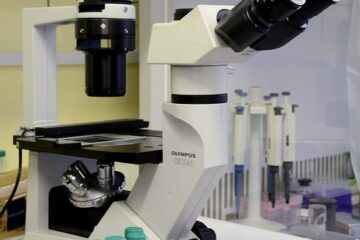Age is a critical factor for IVF decision-making. In the USA, a woman at the age of 50 years can go for IVF but should lead a healthy lifestyle and possess good health conditions to carry a baby. This age limit extended to 2 years i.e. 52 years for women who have cryopreserved their eggs. Therefore, 52 is the upper limit for a woman to proceed with the IVF cycle. However, this limit is not always everywhere followed. In India, The Indian Council of Medical Research (ICMR) suggested the upper age limit for women is 45, and 50 is for men to pursue IVF.

IVF Doctor has explained that women within their age range between their 20s and 30s have a great possibility of getting successful IVF result. During this age limit, the viability of the egg is maximum and facilitates the fertilization process.
IVF and Age
A human trial was involving 290 fertility clinics reported that a 37% IVF success rate obtained in women under 35 years of age, but is reduced to 31% in women under the age of 35-37 years. Moreover, the success of IVF is gradually reduced to 21%, 11%, and 4% in the women age group under 38-40, 41-42, and over 42 age group people. The study result found average successful IVF pregnancy rate is 27% and concluded that women under the age of 35 years have the highest positive outcomes.
Modern ART allows pursuing IVF even after menopause by offering hormonal treatment, and egg and embryo donation process. These additional supportive treatments often provide successful pregnancy outcomes after IVF treatment. However, it is necessary to mention that the increased maternal age causes fetal morbidity.
The above information also answers What is the Maximum age for IVF in India?
The role of personalized fertility assessments in determining suitability for IVF at advanced ages
Personalized fertility assessments play a crucial role in determining the suitability of IVF for individuals, particularly those of advanced maternal age. As fertility naturally declines with age, comprehensive evaluations allow fertility specialists to identify key factors that impact the likelihood of IVF success and the associated risks.
These assessments typically include tests to measure ovarian reserve, such as anti-Müllerian hormone (AMH) levels and antral follicle counts, which indicate the number and quality of eggs remaining. Hormonal profiles, including levels of follicle-stimulating hormone (FSH) and estradiol, provide additional insight into a woman’s reproductive potential. Advanced diagnostic tools, such as ultrasound imaging, evaluate the health of the ovaries and uterus, ensuring there are no structural issues that could impede pregnancy.
For older patients, these assessments help determine whether using their own eggs or opting for donor eggs is more appropriate. They also guide decisions about preimplantation genetic testing to screen embryos for chromosomal abnormalities, which are more common with advancing age. Personalized assessments are equally vital for identifying underlying health conditions that may increase the risks of pregnancy or complications during IVF.
Ultimately, tailored fertility evaluations enable healthcare providers to create individualized treatment plans, improving outcomes while ensuring patient safety and well-being.
Ethical and societal considerations tied to upper age limits for IVF
The ethical and societal considerations surrounding upper age limits for IVF involve complex questions about fairness, health, and the implications for both parents and children. From an ethical standpoint, debates arise about whether it is responsible to facilitate parenthood for individuals at an advanced age, given potential health risks to the mother and the likelihood that older parents may not live to raise their children fully.
Societal concerns focus on balancing individual rights with broader implications, such as resource allocation in healthcare systems and the psychological impacts on children born to significantly older parents. Guidelines like those from the Indian Council of Medical Research help address these issues while encouraging informed decision-making.
Conclusion
In conclusion, addressing advanced maternal age in IVF treatment requires a comprehensive, personalized approach that considers medical, ethical, and societal factors. Fertility assessments are essential in evaluating reproductive potential and guiding treatment plans, ensuring that patients receive care tailored to their unique circumstances. These evaluations help balance the desire for parenthood with considerations of health risks and realistic outcomes.
Ethically and socially, the discussion around age limits for IVF highlights the need to balance individual autonomy with broader implications for family dynamics, healthcare resource allocation, and the well-being of future children. Clear guidelines, informed decision-making, and advances in reproductive technology play critical roles in navigating these complexities.



